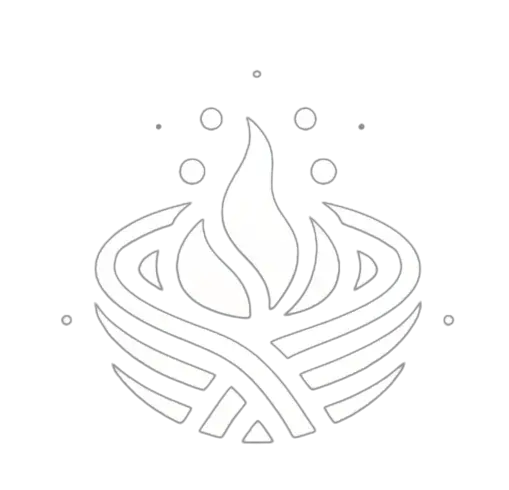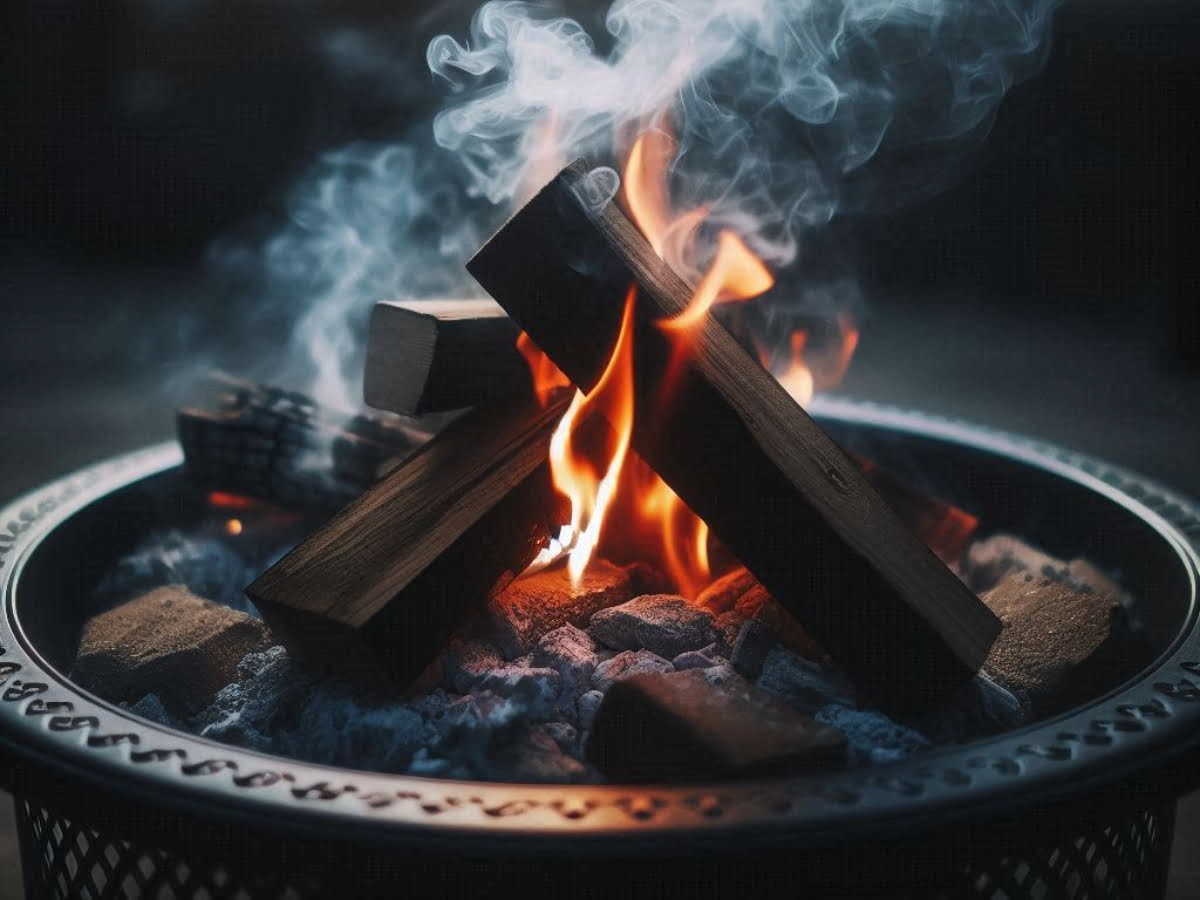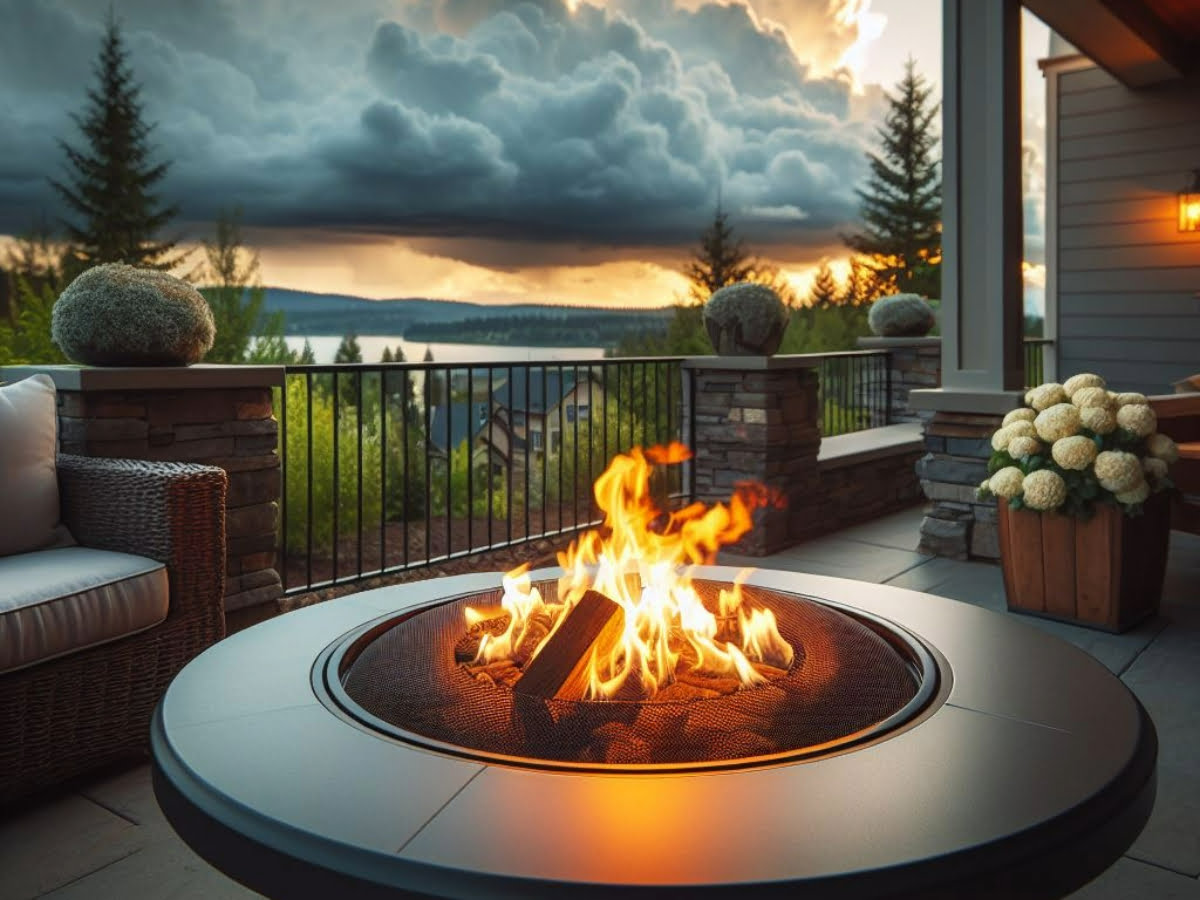
The question “can propane fire pits use natural gas” is pivtal for homeowners who are striving to be efficient and environmentally friendly with their energy choices. Natural gas is known for being cost-effective and green, making it an attractive alternative to propane. Knowing the compatibility of these fuel sources is essential in making an appropriate choice. This blog will discuss if it is possible to use natural gas in propane fire pits, and will provide a survey of the feasibility and the risks of using natural gas in propane fire pits, along with professional insights and practical considerations.
Understanding Propane and Natural Gas
Natural Gas:
Natural gas, which is primarily composed of methane, is delivered through a dedicated pipe network. Natural gas is typically favored for its environmental performance and the greenhouse gas emissions and particulate matter emissions associated per unit of energy content are lower than for propane. Natural gas could be reliably accessed through the (often local) natural gas utility network and is a convenient and cost-effective option for homeowners that do not want to worry about storage tanks. Natural gas service, however, may not be universally accessible or available in all regions.
Propane:
Propane, by comparison, is a byproduct of natural gas processing and crude oil refining and is stored in a portable and overseen pressurized tank. The benefits of propane are that you can store it on-site, and it is a flexible energy source for residential and outdoor applications like fire pits; however, these conveniences usually result in a higher cost per unit of energy because of distribution costs. Propane has the advantage of being an independent fuel source, meaning you are not reliant on the local utility infrastructure and, therefore, on a gas supply network; however, it can be more costly to purchase and acquire, particularly if you cannot store the fuel on-site or need to make frequent tank exchanges.
Pros of Using Natural Gas Over Propane
The following are key reasons why natural gas is first choice to many homeowners:
Cost-Effectiveness:
Natural gas is cheaper than propane and is one of the primary reasons why homeowners choose it over propane. This cost savings over time is significant, especially for households that frequently use their fire pits. In addition to the energy savings, natural gas is delivered to homes via pipelines, which is more convenient and eliminates the need to purchase propane tanks and to refill them
Continuous Fuel Supply:
Natural gas is supplied directly to homes through a continuous pipeline network, providing an uninterrupted fuel source. The constant availability of natural gas provided by the network of pipelines that delivers gas directly to homes offers a regular fuel supply. This eliminates the need to be concerned about running out of fuel in the middle of an event, or to have to monitor fuel levels and schedule propane refills. This aspect of natural gas pipelines is particularly beneficial when fuel consumption is high, providing a seamless experience for the user.
Environmental Benefits:
Natural gas is often praised as a cleaner fuel than propane, resulting in lower greenhouse gas emissions and less pollution – particularly of fine particulate matter – and leads to better air quality and lower emissions. Friends of the Earth, may rejoice in knowing they are utilizing a product that results in fewer greenhouse gas emissions.
Convenience and Availability:
Natural gas connections already exist in many suburban and urban neighborhoods, making connection simple and easy. Natural gas can be more convenient to use than propane because the infrastructure already exists in many locations, meaning no tank storage and difficulty of exchanging propane tanks. For propane, delivery or pick-up schedule, arranging for filled tanks, storage and handling are all removed from the equation when using natural gas.
Can I Use Natural Gas in a Propane Fire Pit?
In short, no, you cannot use natural gas directly in a propane fire pit without making significant modifications. Propane fire pits are made to operate with the higher pressure and energy density of propane, and devices designed to burn it are rarely able to burn natural gas without modification. Natural gas is different from propane and burns differently, which requires changes to the burner, the orifice, and system in general to be able to burn natural gas safely and efficiently.
Risks of Using Natural Gas in a Propane Fire Pit:
Incompatibility and Safety Hazards:
Mistakenly employing natural gas in a propane fire pit without proper conversion could have significant safety implications. The burner and orifices in propane fire pits are sized optimally to correspond to the higher pressure and energy content of propane. By contrast, natural gas, while burning at a lower pressure than propane, could cause incomplete combustion, thereby increasing the risk of incomplete combustion and potentially leading to a dangerous buildup of carbon monoxide and less efficient burning. This could create a significant health risk, and impair the fire pit’s operational efficiency.
Regulatory and Code Compliance:
Using natural gas in a propane fire pit against professional advice, or without appropriate recommendations, could lead to non-compliance with local building regulations and codes. If you fail to comply with the safety standards, you could be at risk of incurring fines, and putting your firepit at risk. A professional will possess the knowledge necessary to ensure that a conversion is done, and a fire pit is constructed properly according to safety and regulatory requirements.
Warranty Voids:
Many propane fire pits come with a manufacturer warranty that specifies the type of fuel to be used. Using natural gas without a proper conversion can void warranties from the manufacturer. This means any damages or malfunctions that are caused by improper fuel use may not be covered under the manufacturer warranty, resulting in potential out-of-pocket costs for additional repair or replacement.
Inefficient Operation:
As with any fire pit, using natural gas in a propane fire pit without a proper conversion can result in poor operation. The fire pit may not produce the same amount of heat it was typically designed to produce, and therefore, your more enjoyable experience is at stake. Furthermore, natural gas may not burn as cleanly as propane when it is being burned in a system that was designed for propane, resulting in additional soot and potential clogging hazards over time.
Equipment Damage:
With the constant improper use of natural gas in a propane fire pit, equipment may incur long-term damage. The pressure-related components that were designed for propane may wear out earlier or fail under the differing operational conditions of natural gas, resulting in expensive repairs or replacements.
Conversion of Propane Fire Pit to Natural Gas:
Given the risks associated with using natural gas without making the necessary modifications in a propane fire pit, it would be important to have a formal conversion process completed. Converting a propane fire pit to natural gas should occur with steps and safe practice standards in order to support superior functioning and ensure safety. For a full guide on safely converting your propane fire pit to natural gas, please see our blog on converting propane fire pits to natural gas for more information.









